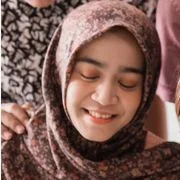

Hire The Best Literature Tutor
Top Tutors, Top Grades. Without The Stress!
10,000+ Happy Students From Various Universities
Choose MEB. Choose Peace Of Mind!
How Much For Private 1:1 Tutoring & Hw Help?
Private 1:1 Tutors Cost $20 – 35 per hour* on average. HW Help cost depends mostly on the effort**.
Literature Online Tutoring & Homework Help
What is Literature?
Literature is the body of written works valued for their artistic expression, thematic depth, and cultural significance. It encompasses poetry, prose, and drama created across eras, reflecting human experiences. Scholars often follow MLA (Modern Language Association) style guides to cite sources. e.g. a student analyzing Shakespeare’s sonnets.
Also called belles-lettres, letters, or creative writing. In some circles you’ll hear “the canon” or “the written arts” used as synonyms for Literature.
Major topics include Poetry (sonnets, free verse), Prose (novels, short stories), Drama (tragedy, comedy), Literary Criticism (theories, close reading), Comparative Literature (cross-cultural studies), and Genre Studies (sci‑fi, historical fiction). You might explore children’s lit through Harry Potter, or Gothic themes in Mary Shelley’s Frankenstein. Their are many subfields like Eco-criticism, Digital Humanities, and Narrative Theory.
From the Epic of Gilgamesh (c.2100 BCE) to Homer’s Iliad and Odyssey, early civilizations set the stage. Medieval romances like The Song of Roland emerged around the 11th century. The Renaissance (14th–17th centuries) saw Shakespeare, Marlowe and the birth of the novel soon after in Cervantes’s Don Quixote. Romanticism flourished late 18th century with Wordsworth and Blake, then Realism in mid‑19th (Tolstoy, Dickens). Modernism shattered old forms early 20th (Joyce, Woolf). Postmodernism followed mid‑20th (Pynchon, Borges), leading to today’s digital storytelling and fan fiction.
How can MEB help you with Literature?
Do you want to get better at Literature? MEB offers one-on-one online Literature tutoring. If you are a school, college or university student, our tutor can help you with assignments, essays, projects, lab reports, live tests and dissertations. We are available 24 hours a day. You can chat with us on WhatsApp or email us at meb@myengineeringbuddy.com.
Most of our students come from the USA, Canada, the UK, the Gulf, Europe and Australia. Students ask for our help when subjects are hard, homework piles up, questions seem confusing, they miss classes, work part time, or face health and personal issues.
Parents, if your ward is finding Literature difficult, contact us today. Our tutors will help them improve their grades and feel confident. They will thank you!
MEB also supports over 1000 other subjects with expert tutors. Getting help early makes learning easier and less stressful.
DISCLAIMER: OUR SERVICES AIM TO PROVIDE PERSONALIZED ACADEMIC GUIDANCE, HELPING STUDENTS UNDERSTAND CONCEPTS AND IMPROVE SKILLS. MATERIALS PROVIDED ARE FOR REFERENCE AND LEARNING PURPOSES ONLY. MISUSING THEM FOR ACADEMIC DISHONESTY OR VIOLATIONS OF INTEGRITY POLICIES IS STRONGLY DISCOURAGED. READ OUR HONOR CODE AND ACADEMIC INTEGRITY POLICY TO CURB DISHONEST BEHAVIOUR.
What is so special about Literature?
Literature is special because it lets us explore different worlds and ideas through stories and poems. It belongs to humanities and uses simple words to show human feelings, history, and culture. Unlike math or science, it relies on language and imagination. That makes each reading unique, giving a fresh view on life and teaching us to understand people from various times and places.
But literature also has downsides compared to other subjects. Its ideas can be hard to test or measure, so grades can feel unfair. It may seem less practical than science or tech, but it builds strong reading, writing, and thinking skills. It helps with empathy and clear speech. Still, if you prefer exact answers or experiments, literature might seem vague or slow.
What are the career opportunities in Literature?
BA in English literature, MA, PhD and diplomas in creative writing or translation studies are common next‑step programs. Recent trends include digital humanities, cultural studies, postcolonial theory and race/gender studies. You can also move into interdisciplinary tracks like film, media or comparative literature.
Many literature graduates become content writers, editors, teachers or lecturers. Others work as translators, researchers or communications specialists. Typical tasks include close reading, writing and editing texts, lesson planning, academic research or developing marketing and social media content.
We study literature to sharpen critical thinking and grasp cultural contexts. Test preparation for exams like SAT, GRE or English proficiency tests hones reading comprehension and essay writing skills. It also builds confidence for academic or professional assessments.
Literature skills apply to journalism, law, publishing, marketing and public relations. They foster empathy, clear communication and research abilities. In creative industries literature training supports scriptwriting, storytelling and digital content creation, making candidates versatile across different career paths.
How to learn Literature?
Start by mapping out your course or exam syllabus. Choose the set texts and read them actively: underline key passages, make notes on themes, characters and plot points. After each chapter or poem, write a short summary in your own words. Create a list of important quotes and practice explaining how they link to bigger ideas. Draft essay plans for common question types and time yourself writing quick paragraphs. Finally, review past papers and mark schemes to check your answers against exam standards.
Literature can seem tough at first because it asks you to think deeply about language, symbols and themes. You will get better as you learn to spot patterns, build your vocabulary and back up your ideas with evidence. Regular reading, writing and discussion make the subject much more approachable.
You can study Literature on your own if you’re disciplined, but a tutor brings structure, clear feedback and guidance on tricky topics. Self-study works well once you know the basics, yet a tutor helps you avoid bad habits, speeds up your progress and keeps you motivated, especially before exams.
Our MEB tutors have years of experience in school and university Literature courses. We offer 24/7 one‑to‑one online lessons, personalized study plans, essay reviews and mock exam practice. Whether you need help understanding Shakespeare, analysing novels or mastering essay technique, we provide tailored support at an affordable fee.
How long it takes to prepare depends on your starting point and goals. For a typical high‑school or first‑year college course, begin your reading and notes 8–12 weeks before exams. Spend at least 30–45 minutes daily on active reading and writing. Increase that to an hour or more in the four weeks leading up to test day for review and timed practice.
In addition to MEB tutoring, try these resources: CrashCourse Literature series on YouTube (youtube.com/CrashCourse), Khan Academy literary analysis (khanacademy.org), SparkNotes (sparknotes.com) and CliffsNotes (cliffsnotes.com) for summaries and quizzes, Purdue OWL (owl.purdue.edu) for writing guides, The Norton Introduction to Literature, How to Read Literature Like a Professor by Thomas C. Foster, Literary Theory: An Introduction by Terry Eagleton, The Elements of Style by Strunk and White, plus Open Culture podcasts (openculture.com) and JSTOR Daily (daily.jstor.org) for modern criticism.
College students, parents, tutors from USA, Canada, UK, Gulf and beyond—if you need a helping hand, whether online 1:1 24/7 tutoring or assignments, our tutors at MEB can help at an affordable fee.


















